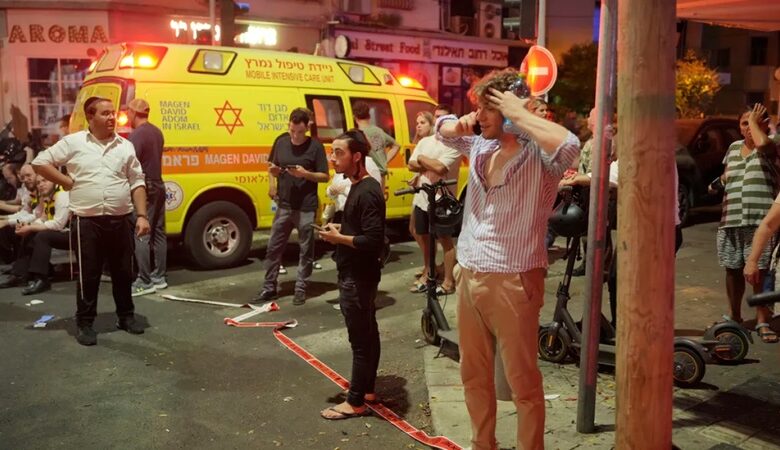Israel Investigates Potential Security Lapses After Drone Attack in Tel Aviv

News Mania Desk/Agnibeena Ghosh/20th July 2024
Israeli authorities are currently probing the circumstances surrounding a deadly drone attack in Tel Aviv that resulted in one fatality and injured at least ten others on Friday. The incident has raised serious concerns about security lapses, as the drone was able to bypass Israel’s defense systems.
The attack has been claimed by Yemen’s Houthi rebels, who stated that it was a response to Israel’s ongoing military actions in Gaza. Houthi spokesperson Yahya Sare’e announced that the operation utilized a new drone capable of evading enemy interception systems. He emphasized that such operations would continue as long as the aggression against the Gaza Strip persisted.
This event marks the first instance of Tel Aviv, Israel’s commercial hub, being struck by a drone in an attack attributed to the Houthis. The Israeli Defense Forces (IDF) believe that the drone, suspected to be an Iranian-made Samad-3 model, was launched from Yemen and had undergone modifications to extend its range. In addition, a second drone was intercepted outside Israeli territory during the attack.
An Israeli military official disclosed that the drone had been detected by an aerial defense system but was not intercepted due to human error. The drone, armed with a warhead, crashed into an apartment building, causing the fatal explosion. The official did not elaborate on the specifics of the human error or the payload of the drone.
Initial investigations revealed that no sirens were activated during the incident. US Ambassador to Israel Jack Lew expressed his shock at the attack and offered condolences to the victims’ families, confirming that personnel at the US Embassy Branch Office were safe.
The explosion occurred in a central district housing several diplomatic missions and struck approximately 100 meters from a US Embassy branch office. Despite the proximity, there was no damage to the US diplomatic mission, and no injuries were reported among US personnel.
Emergency services responded to the explosion on Shalom Aleichem Street. Magen David Adom (MDA), Israel’s emergency service, reported that the deceased man suffered penetrating injuries, and at least four others sustained shrapnel wounds.
Israeli far-right National Security Minister Itamar Ben Gvir and opposition leader Yair Lapid criticized the government’s inability to protect the country, pointing out the lack of effective security measures. Ben Gvir emphasized the need for better policy-making and security planning.
Israeli Prime Minister Benjamin Netanyahu had recently disbanded the country’s war cabinet following the withdrawal of former member Benny Gantz. The Houthis have a history of targeting Israel with drones and missiles since the outbreak of the war with Hamas, most of which have been intercepted by Israeli defenses.
The conflict between Israel and Hamas has led to significant casualties and a humanitarian crisis in Gaza. The Houthis have also targeted US assets and commercial shipping in the Red Sea, disrupting one of the world’s critical maritime trade routes.
Houthi spokesperson Yahya Sare’e claimed that the drone used in the Tel Aviv attack was a new model named “Yafa,” which can bypass interception systems and evade radar detection. Analysts, however, advise caution regarding the accuracy of Houthi claims, noting that while their assertions can sometimes be factual, they are often exaggerated or fabricated.
The recent drone attack in Tel Aviv has bolstered the Houthis’ position, particularly as it coincides with their weekly rallies supporting Gaza. This development is likely to energize their supporters and further complicate the security landscape in the region.






